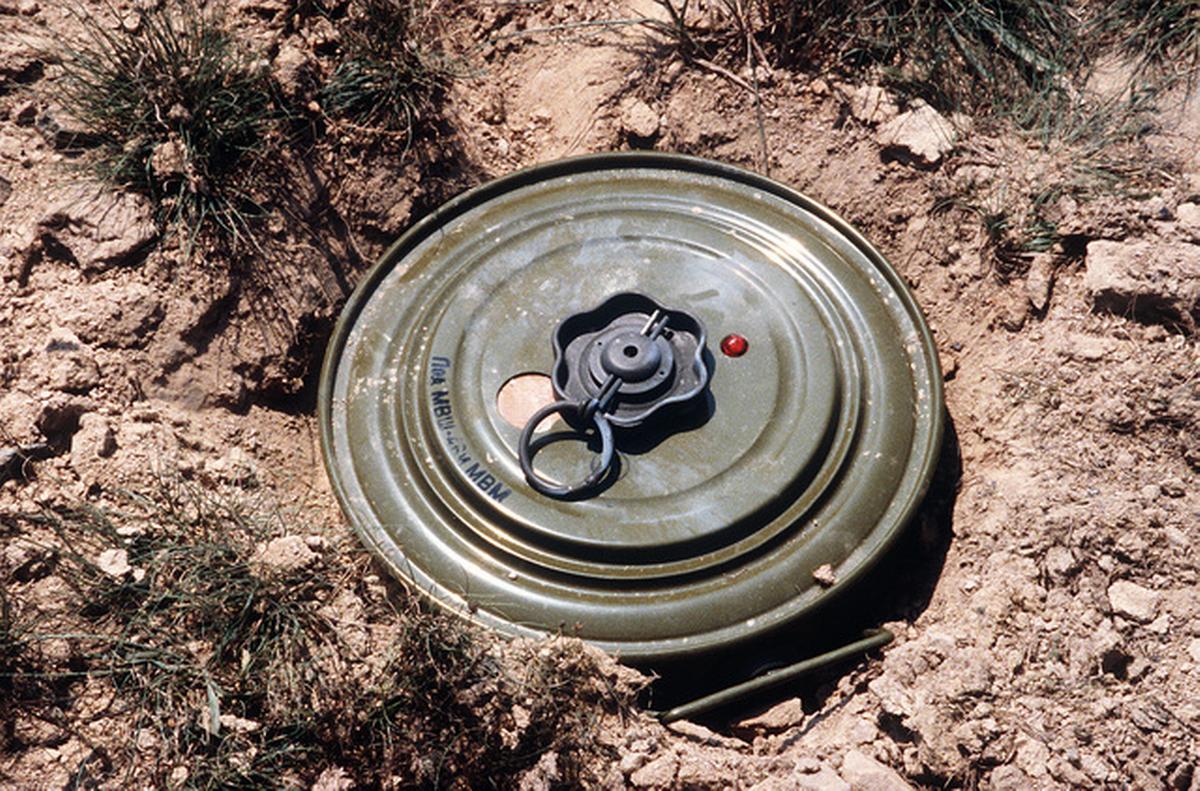
Milano-Cortina. Ecco come verranno spesi i 450 milioni di euro delle paralimpiadi



4 novembre 2025
As five EU member states—Poland, Lithuania, Latvia, Estonia and Finland—are withdrawing from the Ottawa Convention and taking concrete steps to acquire anti-personnel mines, the European Commission says it will not prevent them from doing so using the loans made available under its rearmament plan. A blatant contradiction of the EU longstanding commitment for “a landmine-free world by 2025” and its vaunted role as the the world’s “second largest donor” for mine clearance and victim assistance.
Last spring, the defense ministries of the five countries announced their withdrawal from the 1997 Ottawa Convention, which prohibits the use, stockpiling, production and transfer of anti-personnel mines. The reason behind the ban—which used to count 166 state parties—is simple: these weapons, meant to explode under the feet of enemy soldiers, end up killing civilians in 80% of cases, often decades after wars have ended. “But we live in insane times when facts no longer matter to those in power,” says Kasia Derlicka-Rosenbauer, deputy director of the International Campaign to Ban Landmines (ICBL).
In the following months, the respective national parliaments confirmed the withdrawal, which will become effective in January. Meanwhile, governments and manufacturers began to move: in early October, Finland’s armed forces announced new training programs on landmine use, while representatives of the other four countries met in Latvia to coordinate production—supported by several public and private companies that have already expressed interest.
In parallel, the five member states requested and obtained access to two financial instruments created under the EU’s rearmament plan: the SAFE instrument (Security Action for Europe), offering €150 billion in EU-backed loans for joint procurement of military equipment, and the national escape clause, which allows states to exempt defence spending from the EU budgetary rules, potentially freeing up another €650 billion. So far, no official EU document explicitly excludes anti-personnel mines from the scope of these instruments. On the contrary, the SAFE regulation lists “counter-mobility” among the eligible equipment—a category that includes barriers and obstacles intended to restrict enemy movement, which could easily encompass landmines.
Last July, a European Commission spokesperson contacted by lavialibera merely “noted” the five countries’ decision and did not clarify whether the SAFE loans could be used to purchase mines. Asked again, the spokesperson now says that “the SAFE Regulation sets out the conditions and procedures under which the financial assistance under the SAFE instrument shall be provided to and implemented by the Member States” and "the Commission will check national plans against those criteria". In other words, anti-personnel mines will not be explicitly excluded.
"How can you with one hand provide money for demining and victim assistance and with another hand possibly contributing to the proliferation of these weapons?"
“It's schizophrenic,” comments Derlicka-Rosenbauer. “How can you with one hand provide money for demining and victim assistance and with another hand possibly contributing to the proliferation of these weapons?”. Just on October 23, the EU delegation to the United Nations declared before the First Committee on Disarmament: "We are deeply concerned by the ongoing use of anti-personnel mines. The European Union is resolute in its support for and advancing of the humanitarian objectives of the anti-personnel mine ban Convention, which remains a success story of multilateral diplomacy and an important and effective humanitarian disarmament instrument."
The ICBL, awarded the 1997 Nobel Peace Prize, now pledges to “keep up the pressure” on Brussels. Support also comes from the European Parliament: “I’m appalled. I will demand a written answer from the Commission,” says MEP Cecilia Strada, former president of the Italian NGO Emergency, which provides free medical treatment to the victims of war, poverty, and landmines. “Sadly, even among progressives there are those who think we can roll back international humanitarian law because we’re in an ‘exceptional situation’. But these treaties were created precisely to protect civilians in wartime—that’s why we must defend them.”
Meanwhile, the Czech Republic—bordering only EU countries—is now also considering withdrawal from the Convention, which Prime Minister Petr Fiala has called “obsolete.”
Among the five States that withdrew from the Convention, Poland appears most determined to proceed. Last September, Warsaw secured almost €44 billion from the SAFE loans—the largest single allocation so far. The Defense Ministry confirmed to lavialibera that part of these funds will go to the “Eastern Shield”, a massive border fortification project launched last year, involving both natural and artificial barriers, including anti-drone systems. In March, Deputy Defense Minister Paweł Bejda told Polish radio RMF24 that mines would be part of the plan: “We have no choice—the border situation is grave. We don’t have mines yet, but we are capable of producing them.” Poland also claims to have reached a “preliminary agreement” with the European Investment Bank (EIB) for €1 billion to co-finance the project. Contacted by lavialibera, the EIB—whose policies forbid investments in weapons and ammunition—neither confirmed nor denied.
Reports suggest that Poland might use landmines to deter migrants from crossing its borders
Derlicka-Rosenbauer adds that there are “worrying reports” suggesting that Poland’s decision may also be aimed at deterring migrants crossing the Belarusian border. The government denies it, but “if you mine the border, it’s these people who have nothing to do that will end up being blown apart,” says Strada. In March, Poland suspended the right to asylum for people arriving from Belarus, accusing Minsk of “weaponising migration.” “The fact that these people are being pushed toward our borders, suffering enormous hardship, is all the more reason to protect them,” Strada adds. “Instead, it’s becoming the justification to attack them by any means.”
Amnesty International’s Polish branch tried—and failed—to oppose both the asylum suspension and the mine ban withdrawal. “Like other NGOs, we were excluded from parliamentary hearings on the decision,” says Adam Ploszka, head of advocacy. “There was no debate. We’ll now try to engage at the EU level, but we are not optimistic.” The atmosphere is no better in Finland: “If you try to question decision on military matters, you are ignored or targeted as someone who wants to sell the country to Russia,” says Laura Lodenius, executive director of the Peace Union of Finland, one of the few organizations to oppose the country's withdrawal from the Convention. “It's become almost impossible to even ask question, let alone say that you are against.”
La tua donazione ci servirà a mantenere il sito accessibile a tutti
La tua donazione ci servirà a mantenere il sito accessibile a tutti